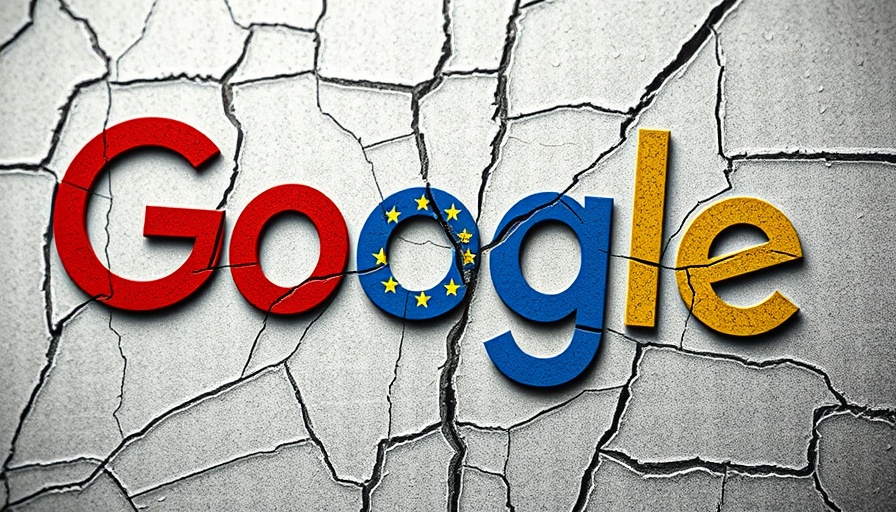
The EU's Landmark Decision: What It Means for Small Businesses
The recent €2.95 billion fine levied against Google by the European Union signals a turning point not just in antitrust regulations but in how small businesses and marketers operate in the digital landscape. This ruling, coupled with the stipulation that Google must divest part of its advertising technology business, introduces a new variable in the advertising ecosystem where many rely on Google’s platforms. As EU competition chief Teresa Ribera indicated, changes need to address existing conflicts of interest, but these changes may also reshape how small businesses interact with various advertising channels.
Deciphering ‘Self-Preferencing’ in Digital Ads
The concept of “self-preferencing” in the digital advertising space means that Google has favored its own services over competitors, making it harder for small businesses to compete. For marketers and small business owners, understanding this term is crucial. It highlights how platforms can manipulate visibility and access based on business interests rather than merit. This ruling exposes the ingrained structures that can stymie smaller players through limited visibility, pushing them to find creative ways to market themselves—be it through shifts to alternative platforms or optimizing for organic search results against a backdrop of paid ads.
Historical Context: A Pattern of Antitrust Action
This isn't Google’s first rodeo with antitrust laws; it's actually the fourth major antitrust penalty it has faced from the EU, following previous fines related to its Android practices and AdSense. Each case compounds the concern surrounding the monopoly-like hold Google has over online advertising. For marketers, this history serves as a reminder of how critical it is to diversify advertising strategies in an evolving landscape. Just as Google faced backlash, so too do companies need to be vigilant of where they place their advertising, recognizing that reliance on a single platform can present significant risks.
The Ripple Effect: Implications for Digital Marketing Strategies
With the potential shift in Google's ad-tech structure, small businesses will need to recalibrate their marketing efforts. This ruling might make advertising more accessible for some by reducing Google’s overwhelming influence. However, it also calls for small business owners to think strategically about how best to allocate their resources. Marketers may need to explore innovative marketing channels—such as social media platforms, email marketing strategies, or local SEO best practices—to engage audiences directly without getting drowned out by larger corporations.
The Future of AI in Marketing
As Google undergoes scrutiny and potential restructuring, the integration of AI tools into marketing practices stands to become more pivotal than ever. Tools leveraging AI can help small businesses optimize their marketing efforts by analyzing consumer behavior, personalizing ad experiences, and automating repetitive tasks. Adopting AI-driven strategies can create efficiencies, giving businesses the competitive edge needed to thrive in a transforming marketplace. Embracing technology transparently may also allow smaller brands to craft compelling narratives that resonate more effectively with their target audiences.
Final Thoughts: A Call to Adapt and Innovate
For small businesses and marketers, the landscape is shifting. The latest EU ruling against Google demonstrates that prevailing power dynamics are beginning to change, and adaptability will be key. As you reevaluate your marketing strategies, consider the emerging tools and technologies at your disposal. Embrace AI-driven solutions as a means to enhance efficiency and connectivity with your audience. It’s not just about surviving amidst regulatory changes but thriving in a landscape where innovation and adaptability are paramount.
 Add Row
Add Row  Add
Add 




Write A Comment